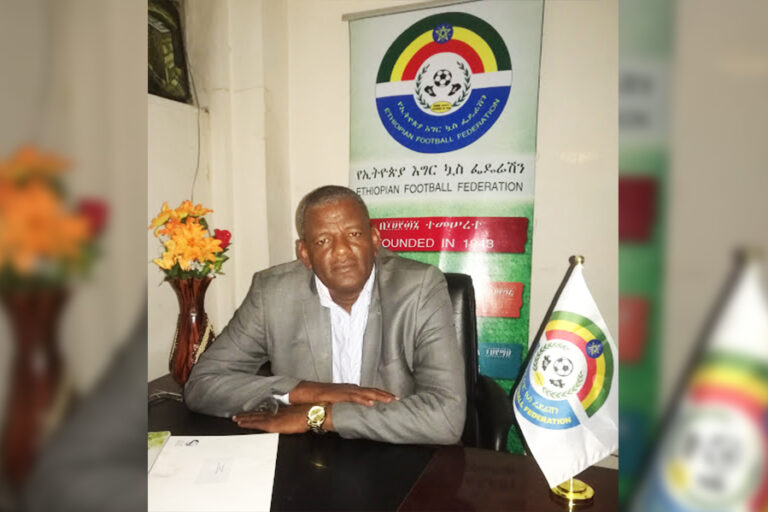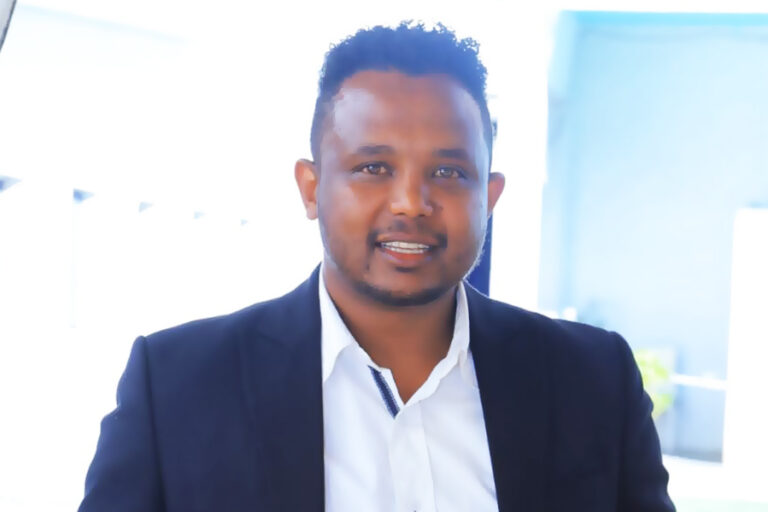With the three premier league clubs from Tigray: Mekele Ketema, Sehul Shere and Adigrat University are not yet decided to join back the top tier in the coming new season, the six teams; the three relegated sides along with Super League runner-ups; Ethio Electric, Hambericho-Durame and Kolfe-Keranyo appear to get a green light from Ethiopian Football Federation to kick off their preparation campaign ahead of the play-off in three weeks’ time. The top three finishers may join the 13 Premier League sides including those promoted to the top tier at the end of the current season.
Though the rumored progress appears to be a plan (B) situation for the federation, critics considered a wise move for it will save everyone from the chaotic situation. “If the three Tigray teams join back the season, it is only about wasting some extra budget for the three runner-ups and three relegated sides. But if they declined it could mean a late premier league season start and huge financial loss,” suggested one critic.
Maybe things could be easier for the three relegated teams: Wolkite Ketema, Jimma AbaJifar and Adama Ketema than those Super League group second spot finishers since they are better structured with strong financial resources.
Kifle Boltena’s Ethio-Electric finished the season in second spot just four points behind group winner Mekelakeya while Hambericho-Durame finished runner-up of group (B) where Addis Ababa Ketema won the top spot seven points clear. Addis Ababa Ketema. Kolfe-Keranyo Sub-City is the third team to join the play-off for it finished second from group (C) where unbeaten side ArbaMinch Ketema won the promotion race.
The one round play-off is expected to take place in Hawassa stadium with the fixture expected to be a marathon.
Maybe second chance for EPL relegated sides
UEFA 2020 European Championship favorites
Euro 2020 is underway and continues through July 11, and there are plenty of angles to consider before making your bets. Here’s an overview of the favorites.
France (+480 to win): The 2018 World Cup champions certainly got no favors from the draw, as they’re grouped with defending Euro champion Portugal and a Germany. But eight of the 11 starters who brought a second world title to France are back for more this year, and there’s a chance this team might actually be better than the world champion from three years ago.
England (+540): Harry Kane is back after leading the 2018 World Cup in goals and helping the Three Lions to their highest finish in 28 years. But this isn’t a particularly seasoned English team, and Group D is sneaky tough.
Belgium (+750): If you believe FIFA’s world rankings, the Belgians are the world’s best team entering the tournament, a position they’ve held since their third-place finish at the World Cup in 2018. But there are questions about the health of stars Kevin De Bruyne, and Axel Witsel,
Portugal (+800): The defending Euro champions still have Cristiano Ronaldo, who’s still getting it done at age 36, and a stalwart defense that might be the best in the entire tournament.
Germany (+900): It’s the swan song for Manager Joachim Low, who will step down after the tournament. Recent results include a 6-0 thumping by Spain in November and a stunning 2-1 loss to North Macedonia on March 31..
Italy (+900): Playing their first three games at home, it would be a tremendous shock if the Italians didn’t at least win Group A, which also includes Turkey, Wales and Switzerland.
Spain (+900): Manager Luis Enrique has shaken things up by leaving legendary center-back Sergio Ramos off his final roster. But the team’s final preparations hit a rocky patch when captain Sergio Busquets tested positive for coronavirus on Sunday, meaning he could miss much of the group stage while in isolation.
Bereket Solomon
Name: Bereket Solomon
Education: BSC
Company name: Maedot Furniture
Title: Owner
Founded in: 2016
What it does: Make different kinds of furniture
HQ: Addis Ababa, around Lafto
Number of employees: 7
Startup Capital: 20,000 birr
Current capital: 500,000 birr
Reasons for starting the business: My passion for wood work
Biggest perk of ownership: Designing new ideas
Biggest strength: Visionary
Biggest challenging: Capital and space
Plan: ITo open 5 showrooms in the coming 5 years
First career: Employee in a private clinic
Most interested in meeting: No one
Most admired person: No one
Stress reducer: Spending money
Favorite past time: Working
Favorite book: Bible
Favorite destination: Anywhere tranquil where I can get new ideas
Favorite automobile: Ford
Building “Baby” Dams to Fund the Mega Dam: “Owners” vs. “Guardians” of the Nile
The Queen of Sheba
The war-mongering government of the Arab Republic of Egypt and its sycophant client Sudan recently declared the completion of their latest round of military adventure under a grandiose heading dubbed as the “Guardians of the Nile”evidently intended to bully, intimidate and scare Ethiopia which is unwaveringly advancing to fill and complete its Grand Ethiopian Renaissance Dam (GERD). Ethiopians are appalled by the blatant aggression, dulled by the incessant open threats and astounded by the concealed sabotage being perpetrated by these countries.
In what appears to be a not-so-coincidence, following this contemptuous intimidation, the “Owner of the Nile”, Ethiopia enthusiastically announced the building of hundreds of mini and medium dams on its vast wealth of river basins. This was communicated with an explicit intent to harvesting three times a year to meet the huge and urgent need to feed its over 110 million population and growing fast.
No where in the history of humankind and geopolitics have we witnessed such a proportion of injustice and contemptuous audacity laced with utter greed of countries that claim something that is not theirs in such a blatant, vulgar and brazen manner. This is not lost to most countries in the world and most certainly all sub-Saharan Africa.
Since the announcement of the intention to build the “baby” dams, both the Arab Republic and Sudan have escalated their rhetoric of war yet again. In fact, the Arab Republic’s most senior diplomat was quoted as describing this critical national developmental endeavor, as Ethiopia’s “provocation”.
A Painful Lesson in the Past
What is remarkable is that neither the Arab Republic nor Sudan did bother soliciting clarification from Ethiopia on its plan, before unleashing their chest-thumping threats. And yet, Ethiopia is a water tower of Africa with numerous rivers and streams cascading down its mountains, gorges and valleys quite a number of them cross-border. If there were any doubts on the intent of these two belligerent countries, this latest bravado is another evidence of their ill-will.
The economic and financial spin offs from the new “baby dams” evidently support the completion of the GERD hence building “baby dams” to fund the mega dam. Obviously, with its burgeoning population, Ethiopia cannot continue to depend on rain-fed agriculture and thus an active irrigation campaign remains an imperative. To support this effort Ethiopia has been, of late, deploying a cloud seeding technology which also serves the interests of the two countries.
Ethiopia will always be haunted by the calamitous famine in the 1980s which killed millions of its citizens and turned Ethiopia into an epitome of global poverty. In building these “baby dams”, Ethiopia intends to feed its population as it can never continue to rely on the demeaning practice of begging food in the 21st century.
“Baby Dams” A Redux
Over a year ago, I wrote a piece entitled “Building Baby Dams to Save the Mother Dam: Ethiopia’s Option”. Here, I capture some of the points, as is, as I find them relevant to this piece.
Ethiopia possesses an enormous arsenal of endless, terrestrial, virtually “free” and indestructible, but supremely powerful natural missiles which furiously cascade down from the breath-taking Ethiopian highlands, mountains, valleys and gorges. They have continued to empower the mighty “Nile of Egypt” in the form of hundreds of thousands of streams, rivers and tributaries since time immemorial.
These very natural resources have continued to nourish the thankless nation which has consumed and thrived on the water without gratitude, let alone, compensation. Regrettably, the Arab Republic has covertly and openly conspired to systematically and strategically weaken and divide Ethiopia for centuries so that the river flows without any use by its natural owner.
Ethiopia may find it appropriate to refuse to play by the uncharitable, if not uncivilized, warfare book which preaches an eye-for-an-eye should the war between two countries broke out. In reaction to the ever-belligerent position of the Arab Republic, Ethiopia could initiate a sustained campaign to utilize all its waterbodies making up the “Mighty Nile” in a determined, if not retaliatory, manner. An official reaction to resort to such a “passive” national campaign in retaliation for the aggression is easy to contemplate given the unflinching national resolve and popular support to build the Dam oh, yes, on its own.
Ethiopia may need to consider that the effort to build the Renaissance Dam, the “Mother of All Dams”, is pursued along with building a thousand “baby dams” (BBDs) in the emerging country as a renewed strategy for its development. Ethiopia may have to actively and strategically, formally and informally, officially and unofficially, implicitly and explicitly engage in BBDs in the entire catchment area of Abay, which stretches several hundreds of miles within the country, should the Arab Republic dare attack it.
While Ethiopia has to defend itself resolutely, it may need to refuse to send its natural missiles, by instead building thousands of small-scale, off-the radar “baby dams” at every hamlet conceivable in retaliation for the Arab Republic’s man-made missiles. It should be that BBDs need not be sanctioned by a government or external funding entity but simply built, managed, filled and operated by “poor and illiterate” peasants of Ethiopia the very victims of the Arab Republic’s explicit and hidden hands of conspiracy and destabilization. Oh, yes, it may be a slightly onerous task for the Arab Republic to hunt down every Ethiopian peasant involved in BBDs.
Spirit of Cooperation?
It is clear that Ethiopia is highly motivated to build new dams across the country. It is highly anticipated that the GERD will be filled and the planned 100 mini and medium dams will be built. We just witnessed a medium-size dam in the north completed 70 percent, and anticipated completion in less than a year. To be sure, even if the Egyptians manage disrupting or destroying the mega dam, as their officials often nauseatingly squawk, the repercussions from that remote adventure should be more evident. This most certainly may trigger, not just the building of dams but containing every water bodies around the country in an unprecedented national campaign not witnessed hitherto. The so called “Guardians of the Nile” may then will have the grueling and impossible task of invading or attacking every town, village and hamlet deep in Ethiopia.
In a more direct way, it is important to remind that the Arab Republic and Sudan do not just show up for “milking the cow,” as President Museveni of Uganda laconically put it once, but earnestly engage in “looking after the cow”, among others, through the protection and development of water catchment areas. The “tenacious milkers” may need to reassess their untenable position in the interest of effectively utilizing resources for mutual development.
And yet, if the spirit of cooperation replaced the incessant greed and bellicose narrative of war, huge developments could be entertained in numerous ways and fronts. Jointly investing in massive agricultural developments in the deserts of the Sudan and the drylands of eastern Ethiopia through a cooperative arrangement, are examples. The just inaugurated Tana-Beles Sugar Development project, that was planned some 60 years ago but was incessantly sabotaged and failed, is an excellent testimony. This could easily turn the region into the breadbasket of the continent. One wonders if the Arab Republic is interested in such win-win schemes as it wickedly and greedily treats these developments as a threat.
In Conclusion
Ethiopia is yet to properly account the real financial value of the 86 percent of the over 55 billion cubic meters of the Nile water that generously cascades to the ungrateful nation every year. Using the lowest global water tariff rate which Egypt uses to sell this amounts to over 6 billion USD. Oh, yes, Egypt actually sells water a water she does not generate, and yet aggressively, contemptuously, clandestinely and openly sabotages Ethiopia from utilizing its own resource to feed its poverty-stricken population.
If there was a global ranking of greed in the world, no one may beat the Arab Republic of Egypt in this unenviable scale. Sudan is simply a pathetic and spineless pawn dancing to the game of the wannabe Pharaohs of the Arab Republic, as it fully recognizes, but (of late) refuses to acknowledge, the importance of the GERD to its people.
The injustice, greed, and conspiracy of the Arab Republic and Sudan must stop in the interest of equitable growth and prosperity of the three countries in particular, and the Horn and the entire riparian region as a whole.
No amount of greedy “Guardians of the Nile” would conquer the magnanimous, but fearless “Owners of the Nile”.
The Queen of Sheba may be reached at QueenOfSheba2020@outlook.com | Twitter: @TheQueenofSheb5 (Twitter has suspended this account for months now, for no apparent reason, as this account is barely involved in tweets. Regrettably, it is possible that Twitter may have been duped by those who loathe its position.)






